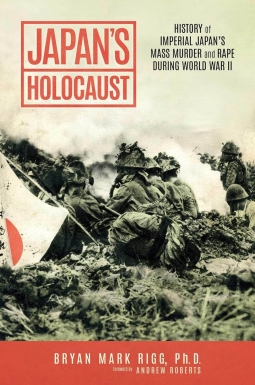Recommended:
 "Before December 7, 1941, the average American regarded the Jap as a comical little fellow who bowed deeply from the waist and said, 'So sorry.'...[and] as a fighting man, the Jap was obviously a joke. His army hadn't been able to to lick poor old broken-down China in four years... This picture was destroyed forever by the bombs that fell on Pearl Harbor... But what makes the Jap so brave? Briefly, the Jap has two words for it. The first is Shinto and the second bushido," Printed weeks before the close of the war, the carefully controlled presses at Yank printed this two page article explaining how the Japanese army worked and who exactly was "the Japanese soldier".
By the end of 1943 Major General Joseph Lawton Collins (1917 - 1987) was one of two U.S. generals to give battle to both the Japanese in the East and the Germans in the West (Curtis Lemay was the other general). In this two page interview with Yank Magazine correspondent Mack Morriss, General Collins answered the question as to which of the two countries produced the most dangerous fighting man: "The Jap is tougher than the German. Even the fanatic SS troops can't compare with the Jap...Cut off an outfit of Germans and nine times out of 10 they'll surrender. Not the Jap."
Click here to read another article in which the Japanese and Germans were compared to one another.
Click here to read an interview with a Kamikaze pilot.
"Wherever they have fought in this war, the Japs have shown an amazing aptitude for the queer and fantastic. They have staged solemn funeral processions in the midst of hot battle. They have blown themselves to bits with hand grenades, have stabbed themselves with daggers, sabers, bayonets and even with scythes. They plunged forward in stupidly blind Banzai charges. They have danced wildly atop ridges while exposed to American fire. And they have directed artillery action while lounging in hammocks." An article that seems remarkable for lacking those politically correct qualities we're all so used to reading in today's magazine columns, this article presents a somewhat slanted, pro-Western vision of the Japanese Army, depicting it as an organized and highly disciplined peasant army: "Some of the finest raw material in the world makes up Japan's infantry...The material is not so adaptable for horsed and mechanized units, as the Japanese possess little natural aptitude for dealing with animals or machines."
Some attention is paid to the strict diet of the Japanese soldier. |